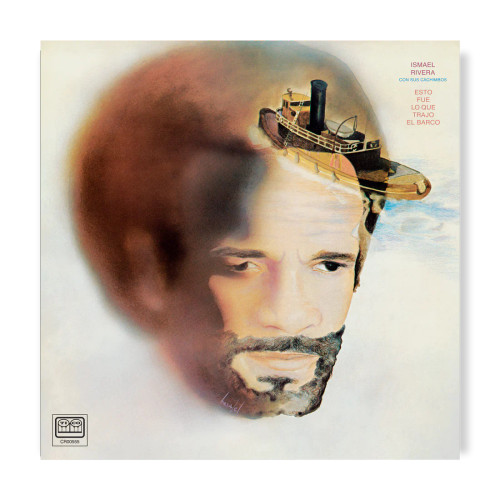180g Vinyl LP Reissue All-Analog Mastered from the Original Tapes by Kevin Gray
Revered, even deified, Ismael Rivera occupies the berth in the Latin music pantheon by being designated "El Sonero Mayor" (the foremost improvising Latin singer), though there has been recent controversy about when and from whom he acquired this epithet. Needless to say, Rivera, also affectionately known as Maelo, has been showered with superlatives and been the subject of numerous tribute songs. He was blessed with a crystal clear tenor voice, which he later honed into a unique improvisational instrument. Beginning in the mid-1950's, as a member of Rafael Cortijo's groundbreaking combo, he was involved in modernizing the Puerto Rican music and dance forms, the bomba and plena, and breaking down the island's racial barriers. It seemed that the world was their oyster, but in 1962, after Maelo was imprisoned for cocaine possession, members of Cortijo y su Combo, led by pianist Rafael Ithier, split to become El Gran Combo.
After serving nearly four years in prison, Maelo reunited with Cortijo on two mid-1960's releases for Tico Records, Bienvenido! (Welcome!) (1966) and Con Todos Los Hierros (Everything But The Kitchen Sink) (1967). Uncomfortable with life as a high-profile ex-drug offender in Puerto Rico, Rivera escaped to the anonymity of New York. In 1967, while visiting the home of the Black Christ in Portobelo, Panama, Rivera had a profound religious experience. At the end of the year he decided to form his own band, called Los Cachimbos. The following year he debuted with them on Tico Records with De Colores. Tito Puente produced the follow-up Controversia (1969).
In 1971, Kako joined Maelo for Lo Ultimo En La Avenida, co-arranged by Cuban pianist, arranger/composer Javier Vázquez, who became a regular sideman with Rivera and later musical director of Los Cachimbos. He wrote all the arrangements on their 1972 release Esto Fué Lo Que Trajo El Barco, the title of which is a "hipster" expression common in the drug culture with a meaning akin to "that's all she wrote" or "what you see is what you get." "It is one of Ismael Rivera's most joyous and introspective albums. "Dime Por Qué," written by Pedro García, was the major hit of the album. Rivera does a heartfelt interpretation of "Incomprendido," one of many Bobby Capó compositions he recorded. "San Miguel Arcangel" reflects his spiritual preoccupations, ending with an all-too-brief trumpet solo, presumably from Victor Paz.
The personnel were not credited on the original vinyl release, but more than likely included Javier Vázquez on piano; Raimundo Vázquez, Javier's brother, on bass; Carlos "Patato" Valdez, conga; Manolín González, alto sax; Harry D'Aguilar, trombone; Victor González, bongo; and Sammy Ayala in the coro (chorus).
Ismael Rivera remains to be one of the most revered salseros with a high demand on his original and reissued recordings. This reissue of Esto Fue Lo Que Trajo El Barco boasts all-analog mastering from the original tapes by Kevin Gray and is pressed on 180-gram vinyl.
- Yumbo Agua Taña Oh!
- Dime por Qué
- La Vaca Lechera
- Maña Maña
- La Manía de Tu Mujer
- San Miguel Arcangel
- Incomprendido
- La Gata Montesa
- Hasta Mañana
- Traigo Salsa





































